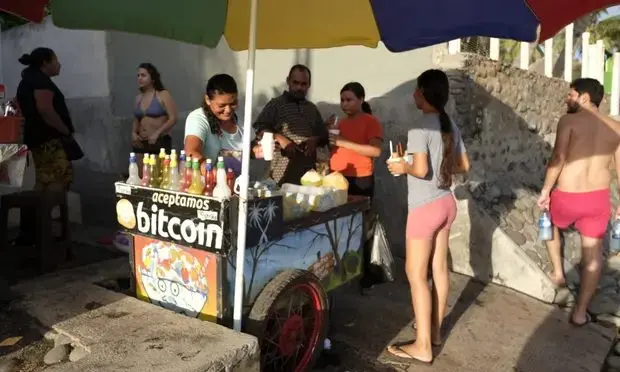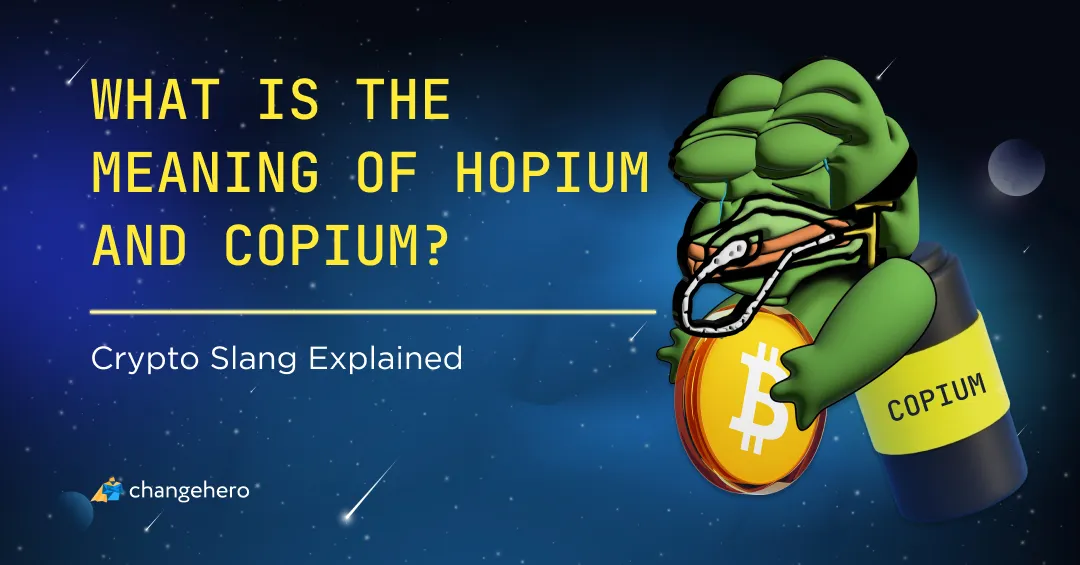Happy belated Bitcoin Day, the day when BTC finally became legal tender. Is El Salvador the beginning of hyperbitcoinization? Our team reviewed news and opinions to deliver an answer to that.
What is Hyperbitcoinization?
Hyperbitcoinization is indeed a complicated sounding term, in addition to being quite a mouthful. So what is hyperbitcoinization? As it was originally defined in the Daniel Krawisz article with the same title, hyperbitcoinization is “Bitcoin-induced demonetization”. The idea is that fiat currencies are going to be losing value not only due to hyperinflation but also losing competition to Bitcoin. When people have the choice between a government-issued currency, which is by default uncontrollably inflationary, and Bitcoin, the assumption is that they will choose the latter. After all, Bitcoin is disinflationary, has hard-coded limited supply and is well suited for digital payments. As a result, in a post-hyperbitcoinization world, Bitcoin is conventionally adopted as a means of payment everywhere. Cross-border payments are also done using Bitcoin as a vehicle, and most importantly, it does not rely on any fiat currency to denominate its value. Can, or will hyperbitcoinization happen? For that to become reality, plenty of criteria have to be met first: most critical of all, Bitcoin adoption has to reach mass level. Thankfully for all proponents of Bitcoin, we can already see what could as well be the beginning of the process.
Bitcoin and El Salvador

In El Salvador Bitcoin has a legal tender status on a par with the US dollar since September 7, 2021. It will not be an understatement to say that this nation has become an unprecedented case that the sceptics and believers are watching with equal attention. The decision was not made out of the blue. It all started in 2018 with El Zonte, a coastal town which attracted investors who thought adding Bitcoin infrastructure will help the community. And help it did: according to the Vice documentary, locals received access to digital payments for retail and utilities. Fast forward three years, and the experiment continues on the national scale.
How Did the Government Prepare?
What is Nayib Bukele’s government doing for things to go smoothly? After all, they are still onboarding millions of people into a structure notoriously challenging even for the technically savvy.
- Launching an official digital wallet Chivo with both USD and BTC (via Lightning Network) and instant conversions;
- Providing one-time bonus payments of $30 in BTC for all users of the wallet. These $30 will not be convertible to USD;
- Supplying 200 Bitcoin ATMs to as many locations as possible;
- Purchasing BTC to the treasury (560 BTC at the time of writing);
- Exempting Bitcoin transactions from capital gains tax;
- Granting residency to foreign investors who put 3 BTC in the national economy;
- And finally, building geothermally powered Bitcoin mining facilities.
From the government’s point of view, this move should lessen the reliance on the other legal tender, USD. But what do the people of El Salvador think?
What do the people of El Salvador think?
Apparently, the Bitcoin law is largely unpopular with the masses. Out of 1,281 respondents in the Central American University survey, only 32% expressed satisfaction with the passing of the law. 9 out of 10 respondents clearly stated a lack of understanding of Bitcoin, and 8 out of 10 people do not have plans to use it. The widespread scepticism is understandable, as the law was passed only in five days since submission. The Salvadorans have not had enough time to accommodate yet and now they might be exposed to BTC’s volatility. The opinions expressed in the survey are similar to what the International Monetary Fund has been warning El Salvador against. Volatility of cryptocurrencies can be harmful to national economies and households alike, and anti-money laundering laws are not enforced well enough, they claim.
Tweets about hyperbitcoinization and El Salvador
Buying the dip 😉
150 new coins added.#BitcoinDay #BTC🇸🇻 — Nayib Bukele 🇸🇻 (@nayibbukele) September 7, 2021
Of course, the go-to account to learn about the progress of Bitcoin adoption in El Salvador would be the President Nayib Bukele. During the flash crash on September 7, they stacked their supply of Bitcoin on the national balance sheet. He even tagged the International Money Fund in the post. The IMF has been one of the most vocal critics of the Bitcoin law outside of the nation.
Starbucks accepting #bitcoin as payment in El Salvador 🧡pic.twitter.com/FIUXo8OKVp
— Bitcoin Magazine (@BitcoinMagazine) September 7, 2021
What is hyperbitcoinization looking like in practice? Even large and global businesses such as Starbucks and McDonalds will have to start accepting Bitcoin to continue working in the country.
Hyperbitcoinization was supposed to be a peaceful movement whereby market forces nudged people onto a bitcoin standard. But in the case of El Salvador, it appears that bitcoin adoption is beginning to rely on threats and arrests.https://t.co/Ozx9urP0vs ht @davidgerard pic.twitter.com/vK2Uv9Uvxj
— John Paul Koning (@jp_koning) September 2, 2021
Not everyone is in favor of the means with which the Bitcoin revolution is made. Originally, Bitcoin is an anarchist statement, and seeing it adopted at the hand of the state rubbed people the wrong way. Regarding the story in the tweet, Mario Gomez was released hours after without any charges.
Other countries looking towards Bitcoin
Inspired by El Salvador’s example, other countries are starting to look into legalizing existing digital currencies. Which country uses Bitcoin? They usually do not go as far as making Bitcoin legal tender (yet) but recognizing digital payments and including them into the legal framework.
Cuba
In late August, Cuba passed a law that would include payments in Bitcoin and other cryptocurrencies into the financial system. This law still elaborates that the only legal tender on Cuban soil is the Cuban peso. Unlike El Salvador, Cuba has a national currency, which incidentally is much weaker than the US dollar. If we were to understand hyperbitcoinization puristically, it can already be happening, not in El Salvador but in Cuba instead.
Panama
In Panama, congressman Gabriel Silva submitted a bill to regulate cryptocurrency payments, similarly to Cuba. There is no enforced currency in Panama, and the most commonly used one is the US dollar. Therefore, in the purest sense of the word, Panama may be a more fertile soil for hyperbitcoinization than El Salvador. The use of all currencies there is regulated by common practices, and the shift towards Bitcoin that Krawisz envisioned can happen more naturally.
Ukraine
Most recently, it became known that the law regulating cryptocurrencies in Ukraine that was drafted back in 2020, got passed. Ukraine joined the ranks of countries legally recognizing payments in cryptocurrencies on Sep 8, 2021. Yet again, it did not recognize Bitcoin as legal tender nor introduced a requirement for businesses to accept digital currencies. But it definitely was a step in the right direction for crypto businesses to operate safely and in a regulated manner.
Conclusion
What is hyperbitcoinization and is it already happening? We leave the answer up to you but hopefully the article provided you with enough proof. Obviously, it cannot happen in a day, but Bitcoin Day in El Salvador seems to already be inspiring more nations. However, the more widespread Bitcoin gets, the more it and monetary systems get tested against each other. If you want more of your crypto-related questions answered, do not sleep on our blog! Sign up for daily updates on our Twitter, Facebook, Reddit and Telegram.








